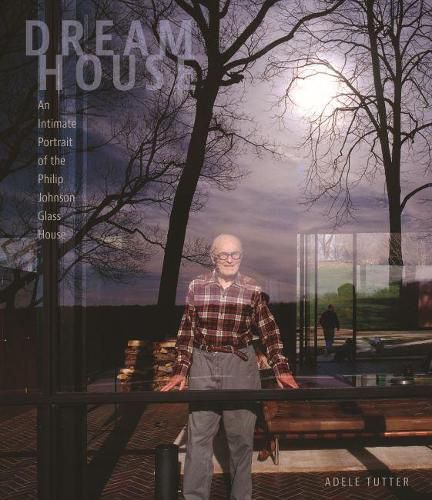Readings Newsletter
Become a Readings Member to make your shopping experience even easier.
Sign in or sign up for free!
You’re not far away from qualifying for FREE standard shipping within Australia
You’ve qualified for FREE standard shipping within Australia
The cart is loading…






Famous for its transparency, the Philip Johnson Glass House–the icon of Modernism that Vincent Scully called
the most conceptually important house of the century –has nonetheless proven vexingly opaque to interpretation. Its architect, Philip Cortelyou Johnson, has been equally elusive, a polarizing and influential cultural figure on whom no psychological character study yet exists. In her new book, Adele Tutter addresses both enigmas.
Dream House: An Intimate Portrait of the Philip Johnson Glass House reveals how this superficially nonrepresentational physical structure encodes aspects of its architect’s aspirations, motivations, and conflicts–how it acts as a veritable self-portrait of his inner world. An envious, vulnerable man emerges from this intimate synthesis. Fearing he lacked talent or genius and possessing a character prone to fragmentation, Johnson perpetually searched for a dominating mentor or style to bolster his sense of self and help organize his chaotic inner world, while concealing the forbidden sense of greatness with which he justified his desire for power and influence. Tutter’s analysis reconciles the contradictory forces in a man who was both a one-time advocate of Hitler and a humanist homosexual, a dogmatic modernist and an errant postmodernist.Through its rigorous, radical reappraisal of the Glass House, this book paints a fresh and psychologically revealing portrait of the man who built it.
$9.00 standard shipping within Australia
FREE standard shipping within Australia for orders over $100.00
Express & International shipping calculated at checkout
Famous for its transparency, the Philip Johnson Glass House–the icon of Modernism that Vincent Scully called
the most conceptually important house of the century –has nonetheless proven vexingly opaque to interpretation. Its architect, Philip Cortelyou Johnson, has been equally elusive, a polarizing and influential cultural figure on whom no psychological character study yet exists. In her new book, Adele Tutter addresses both enigmas.
Dream House: An Intimate Portrait of the Philip Johnson Glass House reveals how this superficially nonrepresentational physical structure encodes aspects of its architect’s aspirations, motivations, and conflicts–how it acts as a veritable self-portrait of his inner world. An envious, vulnerable man emerges from this intimate synthesis. Fearing he lacked talent or genius and possessing a character prone to fragmentation, Johnson perpetually searched for a dominating mentor or style to bolster his sense of self and help organize his chaotic inner world, while concealing the forbidden sense of greatness with which he justified his desire for power and influence. Tutter’s analysis reconciles the contradictory forces in a man who was both a one-time advocate of Hitler and a humanist homosexual, a dogmatic modernist and an errant postmodernist.Through its rigorous, radical reappraisal of the Glass House, this book paints a fresh and psychologically revealing portrait of the man who built it.